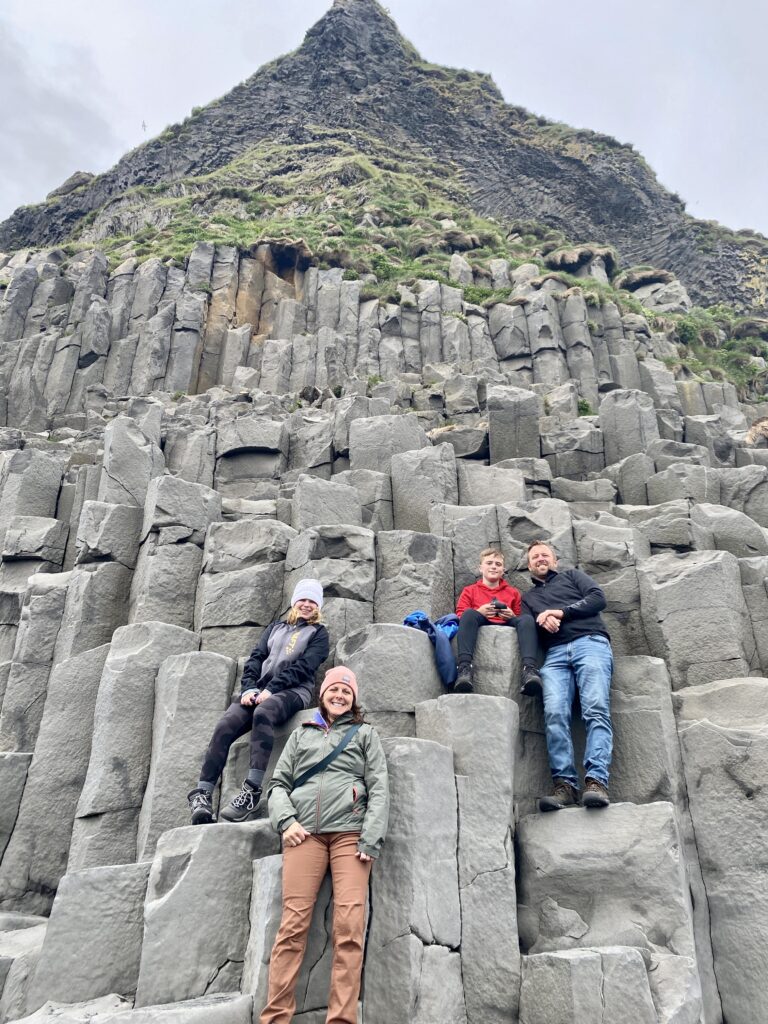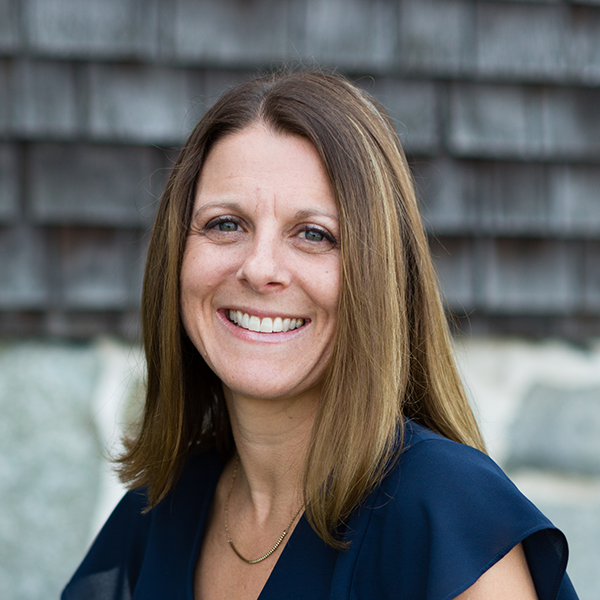Policy and Engagement Manager
Michelle Lambert is a Policy and Engagement Manager at CLF. She leads research on public policies targeting embodied carbon with the goal of decarbonizing building materials and reducing the carbon impact of our built environment. She is an experienced facilitator and project manager which has taught her that the most impactful and lasting successes in sustainability evolve from doing the work of collaboration and consensus building. Prior to joining CLF, Michelle spent the first two decades of her career building a breadth of sustainability project expertise through architectural practice, sustainability consulting and academic teaching. After leading the sustainability efforts at several of Boston’s largest architecture and design firms, she successfully launched her own sustainable design consulting firm where she managed building projects targeting operational and embodied carbon, as well as utilizing many different rating systems. Michelle has a Masters in Urban Planning and Environmental Policy from Tufts University and a Bachelor of Architecture from Carnegie Mellon University, and she holds accreditations in LEED, Passive House and Envision. She is passionate about transforming the way we design, build and live within the natural limits of our environment.
by Michelle Lambert
As an undergraduate architecture student, at the very beginning of my professional journey, I was fortunate to have several professors that were invested in teaching us environmental design and building science, who truly inspired me to want to learn more and set me on a path. In May 1999 I applied for university funding to attend the ‘National Town Meeting for a Sustainable America’ organized by the newly formed President’s Council on Sustainable Development, drove myself to Detroit to hear Al Gore, Bill McDonough and Ray Anderson talk about their visions for transforming design and building practice to stay within our planetary boundaries, and I was hooked. I spent the next few years learning and absorbing everything I could find on the topic of sustainable design. In 2002, I studied for the exam and became one of the earliest LEED Accredited Professionals. In 2010, I was accepted into the USGBC Faculty training program, took the train to DC for a week of intensive training and graduated as the youngest LEED instructor to date at the time.
I was working as a researcher at the Center for Building Performance and Diagnostics at Carnegie Mellon University, and I was given the go ahead to design and teach a course on green building, built around the LEED Rating System framework. It was the first LEED course at a university in the country and was also intentionally interdisciplinary; the first cohort consisted of students from both architecture and civil engineering. I found early on that I loved working and collaborating with students. When the first-ever DOE Solar Decathlon competition was launched, I joined the Carnegie Mellon team as an advisor; doing everything from student design crits to fundraising to actually helping build the house on the National Mall in DC. Our team was the ‘reSOLution’ and our house won the Energy Balance category. I think my passion for teaching and mentorship stems from a desire to share ideas, learn from a diversity of other peoples’ experiences and build on them in order to have an even greater impact for positive change.
Living in Pittsburgh for nine years and exploring its post-industrial steel industry built environment gave me an appreciation for the way building materials and their production are intertwined with communities and livelihoods. My coursework in urban design had also sparked an interest in designing neighborhoods and infrastructure, and how not just the buildings, but how land use practices and policies could, by design, either exacerbate or aim to improve their environmental impacts. So I headed off to Boston to study urban planning and environmental policy at Tufts University.
What I didn’t realize at the time, and something I am incredibly grateful for now, is the integration of social justice and equity perspectives within that graduate program. Our cohort of students completed projects and theses intertwining sustainability, resiliency, community development and advocacy, affordable housing, food insecurity and a host of other complex challenges faced by communities everywhere. The faculty, other students, and the real world projects I engaged in broadened my lens for how sustainability is defined.
For the 20 years following, working in professional practice in architecture and in sustainable design consulting in the Boston region, I grew more and more frustrated with the lack of focus on integrating sustainability in consideration of our diminishing resources and impending climate change crisis. I spent a lot of time wondering why those of us working in the field seemed to grasp how important this was but that standard practice just wasn’t embracing change fast enough.
I was looking for a way to deepen and accelerate the impact I could have beyond project-by-project consulting, so I turned to policy and began volunteering with the Carbon Leadership Forum Boston/Northeast Hub as the co-chair of the policy & advocacy working group. Now having been fortunate to join the CLF as staff on the policy team, I am energized to join a community dedicated to accelerating new ideas and practices in our built environment, and specifically through policy as a tool for systemic and lasting change.
I have two kids, a daughter and a son, and their futures are now infused in all of the work that I do. They created a newfound purpose and solidified my revolve around the urgent need for us to solve and reverse climate change, so that the next generations can have viable futures.
In my free time, I love to travel and explore the beautiful planet we all call home with its incredible diversity of nature and community. My other passions include photography, yoga, cycling, and educating kids around environmental activism. Every day I am reminded of something I learned from my mentors back in my undergraduate architecture school days. That we all have a role to play to, “meet the needs of the present without compromising the ability of future generations to meet their own needs” (Sustainable development as defined in ‘Our Common Future,’ Brundtland Commission, 1987), and I am excited to bring that goal to my work at CLF.

Michelle and family in Iceland

What I am incredibly grateful for now is the integration of social justice and equity perspectives within my graduate program. Our cohort of students completed projects and theses intertwining sustainability, resiliency, community development and advocacy, affordable housing, food insecurity and a host of other complex challenges faced by communities everywhere.